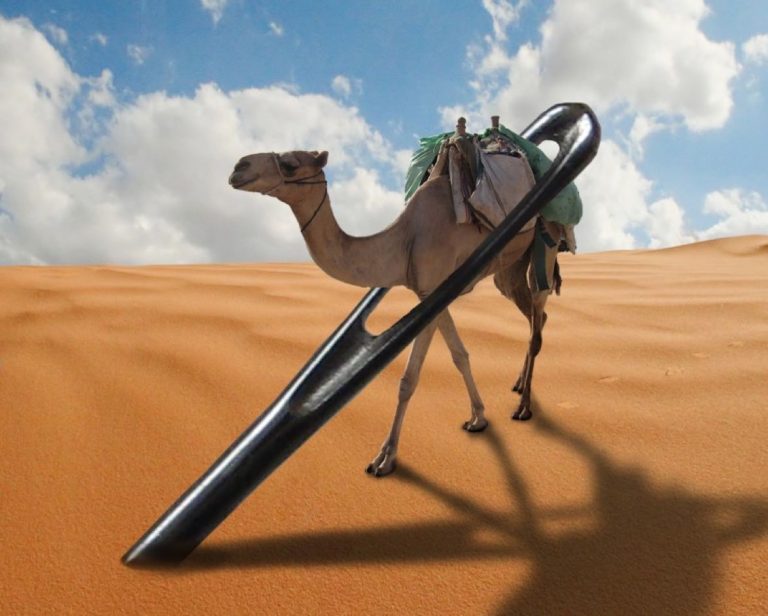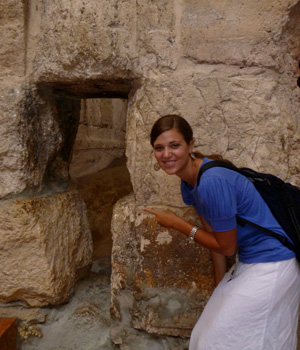
There are a number of various schools of thought on what Jesus was describing in stating that it was easier for a camel to go through the eye of a needle than for a rich man to gain eternal life (Matthew 19:24; Mark 10:25; Luke 18:25). The Persians communicated the idea of the impossible by stating it would be easier to put an elephant through the eye of a needle. The camel was a Jewish variation (the biggest animal in Israel was a camel). Lets take a closer look at the exegetical evidence for these thoughts.
Some speculate that the needle Jesus was mentioning was the Needle Gate, apparently a low and narrow after-hours entryway discovered in the wall surrounding Jerusalem. It was intentionally narrow for security purposes, and a camel could very well basically go through it by removing off any saddles or packs and crawling through on its knees. The issue with this theory is there is no evidence such recorded evidence for such a gate ever existing in the time of Jesus. Beyond that, what sane camel rider would go through such contortions when bigger gates were conveniently available? The camel’s anatomy does not permit it to crawl on its knees.

Others declare that the word equated “camel” (Greek: kamelos) ought to in fact be “cable” (Greek: kamilos). Then the verse would say that it is easier for a cable (or rope) to go through the eye of a needle and NOT for a camel to go through the eye of a needle. To think this, nevertheless, raises more issues than it resolves, particularly calling into question the inerrancy and inspiration of Scripture.
The most likely description is that Jesus was utilizing hyperbole, a figure of speech that exaggerates for emphasis. Jesus made use of this method at other times, describing a “plank” in one’s eye (Matthew 7:3 -5) and swallowing a camel (Matthew 23:24).
Jesus’ message is clear with regards to Matthew 19:24, Mark 10:25 and Luke 18:25 – it is impossible for anybody to be saved on his own merits. Considering that wealth was viewed as evidence of God’s approval, it was frequently taught by the rabbis that wealthy individuals were blessed by God and were, for that reason, the most likely prospects for heaven. Jesus obliterated that idea, and together with it, the concept that anybody can earn immortality. The disciples had the proper feedback to this surprising statement. They were absolutely astonished and asked, “Who then can be saved?” in the next verse. If the rich among them, that included the super-spiritual Pharisees and scribes, were unworthy of heaven, what hope was there for a poor man?

Jesus’ answer is the basis of the gospel: “With man this is impossible, but not with God; all things are possible with God” (Matthew 19:26). Men are saved through God’s gifts of grace, mercy, and faith (Ephesians 2:8 -9). Nothing we do earns salvation for us. It is the poor in spirit who inherit the kingdom of God (Matthew 5:3), those who acknowledge their spiritual poverty and their utter failure to do anything to justify themselves to a holy God. The rich man so frequently is blind to his spiritual poverty since he takes pride in his achievements and has pleased himself with his wealth. He is as likely to humble himself before God as a camel to go through the eye of a needle.
With this exegetical evidence and understanding regarding Jesus’ statement that it was easier for a camel to go through the eye of a needle than for a rich man to gain eternal life (Matthew 19:24; Mark 10:25; Luke 18:25), we should always remember to lean on Him rather than the inadequate works of our own hands.